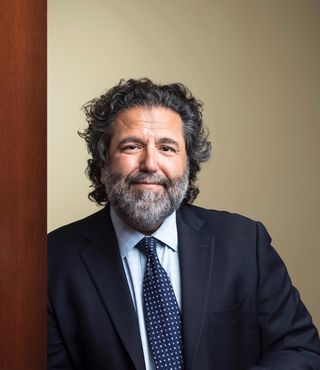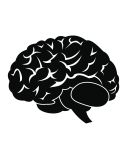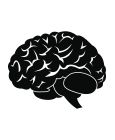Psychedelic-Assisted Therapy
What Psilocybin Could Mean for End-of-Life Care
An investigator of the palliative effects of psychedelics gives his perspective.
Posted July 15, 2019 Reviewed by Matt Huston

By Gordon Waldman
For over three decades, Anthony Bossis has been interested in religion, mysticism, end-of-life experiences, and palliative care—which addresses the needs and comfort of the terminally ill.
“There’s really a paucity of measures to help those people who are suffering with the emotional distress that comes at the end of life,” says Bossis, a clinical psychologist and clinical assistant professor of psychiatry at the New York University School of Medicine. He was co-principal investigator, director of palliative care, and a “session guide” for the NYU Psilocybin Cancer Anxiety Project, a FDA-approved clinical trial, the results of which were published in 2016. The preliminary trial, involving 29 patients, investigated the efficacy of psilocybin—the active psychotropic ingredient in “magic” mushrooms—for improving distress and other states in people with cancer. Bossis is currently working on further research to explore this potential treatment.
What are the main takeaways from the cancer patient study?
The findings showed that anxiety and depression were reduced greatly immediately after the medicine session. Psilocybin produced immediate, significant, and sustained improvements in both anxiety and depression. And about 80% of those people showed sustained benefits nearly seven months later. We're going to continue to track those people going forward. That was remarkable and hadn't been seen before.
We also saw reductions in a measure called demoralization, which is a very common and deep source of suffering for people at the end of life. Both demoralization and hopelessness were improved immediately after the medicine session. Up to 70% of the people reported that the experience was either the single most or in the top five most meaningful experiences of their lifetime, which is somewhat stunning to hear. Almost 90% reported that it improved life satisfaction. That was important.
We don't die well in America and it's really kind of the final taboo, it's something we don't speak about. There's so many people who suffer enormously and there aren't enough tools to address that end-of-life distress. So these results show people having a single experience and having anxiety, depression, and a host of existential measures reduced.
During the sessions, how much talk therapy is there? Is it mostly silent?
So let me put it in context. Three or four weeks prior to the session, we get to know the person quite well and review their life history, their intentions for being in the study, get to know their family and their relational life, and how cancer has affected them. We also provide guidelines for the session itself and what to possibly expect, although we can never predict what will actually happen. One of the purposes of all that is to develop a sense of trust and rapport with the participant, which has been shown to act as a buffer against any adverse effects in terms of anxiety and the possible panic during the experiences. That's really very important.
In the session itself, there's very little talking if it goes well. The person comes in early in the morning, takes the capsule around 9 a.m., wears eye-shades and headphones–and the purpose of that is to encourage the person to look inwards into consciousness and the experience versus being distracted by external consensus realities. So they are fully in the experience. The music provides kind of a backdrop for it and is very important for many people's experiences.
Two guides, typically a male and a female, are there with them the entire time. The participant is laying down on a couch that’s made into a bed for the day, with eye shades and headphones, under the covers. We provide assurance as needed as they go into what could be complicated and challenging experiences. But most of the day we're saying very little—we recommend keeping talking to a minimum.
Then, of course, the next day and the week following we talk a lot about the experience.
What are some of the common themes that showed up in the participants’ experiences?
The things that we hear from the participants are kind of the eternal truths. We hear about the importance of forgiveness, people's experiences of love, love and kindness towards others. Many of them speak of this larger universal love that I like to call agape—from the Greek—that they say seems like some kind of organizing principle of the universe.
What do you see as the major differences between this type of treatment method and what people are currently using in the mainstream for things like anxiety, depression, and end-of-life care?
There are very big differences. Right now the major tools that psychiatry and medicine have to treat anxiety and depression are antidepressants and anti-anxiety agents, which only work temporarily, while the medicine is in your system. With these psychedelic medicines there's a complete paradigm shift. It's not about the drug per se, in the end, but this change in consciousness that allows, for a few hours, these incredible experiences and insights to be gleaned, and that's what changes them. We'll see how long it works for, but so far for months on end these people are changed.
Unbeknownst to some, there was a period of psychedelic research in the 1950s and 60s that came to an abrupt stop due to government regulation. This area of inquiry went largely untouched for decades. How do you think that hiatus affected the work you’re doing now?
First, to talk about the ’50s and early ’60s, it was a really rich period. Aldous Huxley, Gerald Heard and Alan Watts were looking into these medicines as a way of generating experiences that appear to be at the foundation of all religions, this mystic core. So out of that grew the early research of Walter Pahnke and Bill Richards, who devised what's called the Mystical Experiences Scale. That’s defined by a few criteria, including unity, or a strong sense of the interconnectedness of all things; the noetic quality, a term coined by William James; a sense of sacredness; ineffability, as in something that’s almost impossible to describe; and transcendence of time and space, which is a key feature.
The one thing that has changed, of course, is that we have better research methods. Those studies weren't double-blind and placebo-controlled, so that was a shortcoming and limitation of the ’50s and ’60s work.
Was much of that research based around helping people at the end of life?
There were two main arms of the early research. One was end-of-life experiences, people with cancer anxiety, people with cancer who had emotional distress. And the other was alcoholism; they were using LSD to work with alcoholics. And both those arms continue today. A third investigation was in 1962, when they gave psilocybin to healthy participants who were theology students at Marsh Chapel in Boston, known as the “Good Friday Experiment.” That supported the notion that these experiences seem to parallel, mirror, or actually recreate mystical experiences as found throughout time, throughout millennia.
Do you think modern psychedelic research would be completely different if there hadn't been a 30-year gap?
We'll never know. It's one of the few times, if not the only time, in the history of medicine that a medicine, a drug, was discontinued and out of reach even for researchers because of a cultural phenomenon. We've never seen that since. By the mid ’70s the work with cancer patients had come to a close and it was really more than three decades before the research resumed. It’s a profound loss.
What do you think is the ideal place for these drugs in our healthcare system?
With repeated studies and approval, could psilocybin and related compounds be rescheduled for people who are suffering end-of-life distress? People who are dying could have the opportunity to go to specialized centers and have these experiences to mitigate their suffering. So that's one area. Other promising areas where it could be used are with addiction and post-traumatic stress disorder.
So as of now you would not envision this ever being something you could pick up at the pharmacy? You imagine it in a much more structured clinical environment?
Right. I could never imagine this being picked up at the pharmacy. I think if these are rescheduled down the road for clinical purposes they will be done at regulated centers and with professional guides. They are very powerful medicines and they can trigger very adverse psychological experiences with those who aren't screened properly. Without proper guidance, they can be very complicated.
Do you ever feel or see a kind of tension between the spiritual side of these experiences and the purely medical and treatment-oriented side? Do some people look down upon using spirituality to help with medical conditions?
In the end, in our research, the primary measures are not spiritual in nature. The primary measures were depression and anxiety. However, it's important to state that we did notice the greater the level of mystical experience—the more robust that experience was, defined by feelings of unity, noetic quality, sacredness, positive mood, ineffability, and transcendence, the greater the correlation was with the outcome measures of anxiety and depression. So it seems the mystical experience mediates the outcomes, which is fascinating. It's the end of the suffering that's important.
Do you think these drugs and experiences are tapping into something innately spiritual about humans?
That's a great question and I think one of the most important ones. I do. It does seem that humans are wired for these experiences. You could call it a mystical experience. Jung and Rudolf Otto called it numinous experience, and Abraham Maslow called it a peak experience. There's been a variety of labels to describe what seems to be a core experience of human consciousness. These experiences happen even without medicines. They have been happening spontaneously throughout recorded history, through meditation and other ways.
Did you see any significant differences in the way that religious or spiritual and atheist people described these experiences?
Well, about half the people in the cancer study were agnostic or atheist, but the experience was still similar. I often quote a wonderful woman in our study named Dinah, who was a self-described atheist but said the only way she could describe this was being “bathed in God's love.” She goes on to say, “I'm an atheist, I don't want to use this kind of language, but that was the best language.” So I don't think it matters.
Are there major differences among participants in terms of positive or negative profundity? Were some people’s trips scary and others’ completely happy?
Each experience, for most people, seems to have a little of both. There are clearly positive spiritual and psychological experiences but there also can be very tough stretches.
There’s the capacity to re-visit prior experiences within one's life. That can include traumatic experiences, unresolved relationships, tension and conflict. People can revisit loss and death from earlier in their lives, people they have loved and were close to. Revisiting those experiences can be very difficult and challenging, but it seems, if people move into the experience directly, even what looks to be dark and difficult and maybe even traumatic material can prove to be important, insightful, teachable, and even offer an opportunity to resolve those conflicts. Some of the PTSD research being done now is showing that as well.
So, yes, it’s not all easy and smooth. There can be complicated and challenging moments. There could be the possibility of anxiety in those moments, but we can help reassure them and move them through.
Gordon Waldman is a former Psychology Today Editorial Intern.




